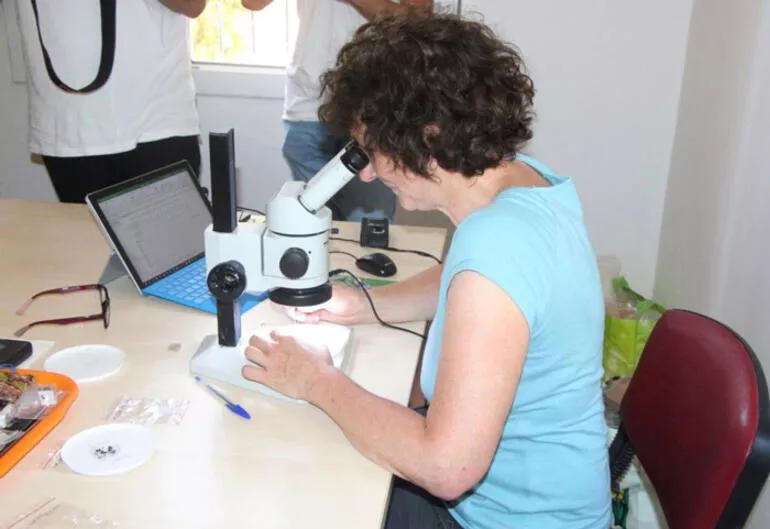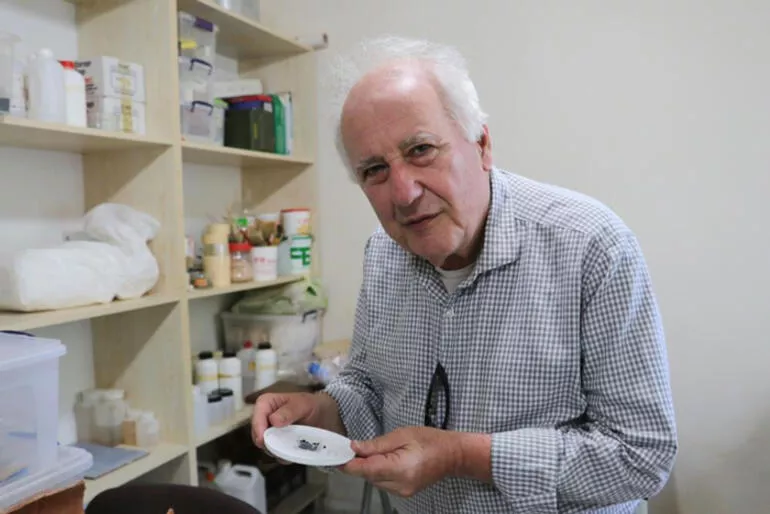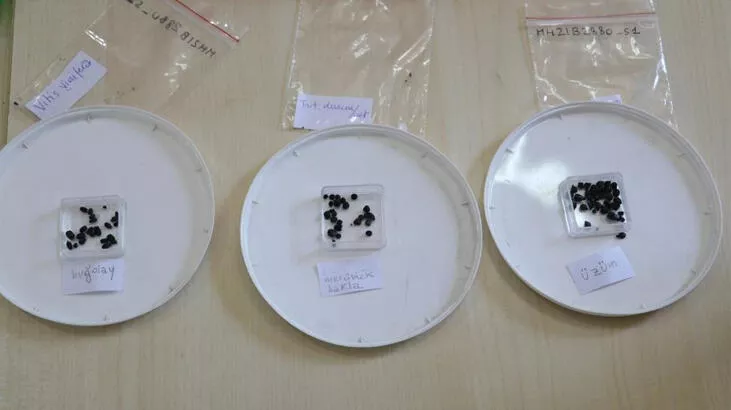Grapes, lentils, broad beans, peas, wheat and barley seeds dating back 3,000 years were found in archaeological excavations in the Misis Ancient City in Adana Yüreğir. Mayor of Yüreğir, Fatih Mehmet Kocaispir, said, “We will report the seeds to state institutions.”
Excavations have been carried out under the Presidency of Adana Archeology Museum since 2012 in Adana’s Yüreğir district. In the excavation carried out by the Italian and Turkish experts in the excavation team, under the scientific consultancy of Prof Dr Anna Lucia D’agata from the Rome International Research Institute and Prof Dr Giovanni Salmeri from the University of Pisa, seeds that are considered to be 3,000 years old were found. The seeds found are being studied at the Misis Mound Excavation House. Mayor of Yüreğir, Fatih Mehmet Kocaispir, also came to the excavation site and examined the seeds found, and received information from the excavation team.
Seeds dating back 3,000 years in Misis



Making a statement here, President Kocaispir said, “We are now in Misis, one of the most important locations in the history of Turkey. With the contribution of our municipality, very serious excavations are carried out in the areas around Misis Mound and Misis Bridge. In these excavations, we reached very serious archaeological findings. This is a place where life has continued uninterruptedly for 8 thousand years. This year, we have reached very exciting findings by our Italian excavation team. Grape seeds dating back 3,000 years have been found. Of course, these grape seeds are an important finding that shows that grape trade and grape planting were carried out here 3 thousand years ago, even though the grape seeds were relatively carbonized and lost their quality. In addition, lentils, broad beans, peas, wheat and barley seeds were found. I am very excited right now,” he said.
Seeds will be reported to government agencies
Noting that the seeds found were not suitable for planting, Kocaispir said, “These seeds reveal that there are ports along the Ceyhan River and that these products are traded. Our excavations will continue in September and October. We hope that we will find new seeds and new findings in these excavations. Archaeological findings are not just sculptures. These seeds are very important for us to learn how human life flowed in those times. We will report these seeds to government agencies. After evaluating the seeds, our Ministry will open a new horizon for us in terms of the history of agriculture in the coming days. Scientists will do these studies in the coming days,” he said.



Prof Dr Giovanni Salmeri, the scientific advisor of the excavation, emphasized that archaeological excavations are not just about sculptures, and said, “Archaeology is knowing human life. In our excavations, we found the seeds in the soil. We did analysis. We want to know about the life in Çukurova 3 thousand 4 thousand years ago,” he said.
